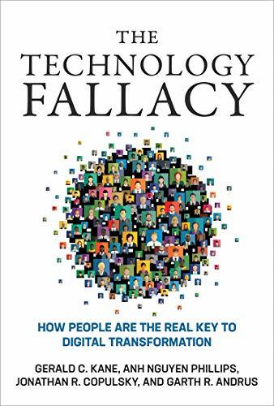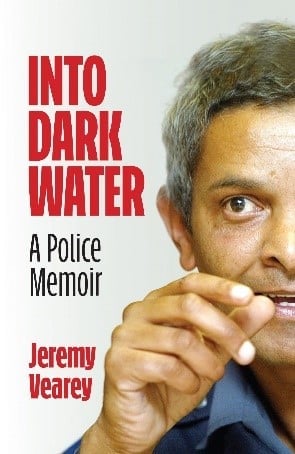Reading list: Prof Martin Butler’s favourite reads
Future Crimes provides a view into the dark side of technological advances and the unintended consequences of our connected world. Marc Goodman is a global authority on online security. He provides a deep dive into the digital underground exposing the disturbing ways criminals, corporations and state actors use technology to make individuals and organisations more vulnerable than ever imagined. He shares stories of hackers activating baby monitors and connected toys to spy on families, thieves analysing social media plan home invasions, and stalkers exploiting a smartphone GPS to track their victims. He argues that technology may already seem ubiquitous, but a host of new technologies will provide more benefits, create more dependency and make us more vulnerable. This book offers an excellent non-technical account of the challenge we face from a security and privacy perspective. Marc’s insights are based on a career in law enforcement and counterterrorism, and at times, the book read like a science fiction novel only to realise this is actual companies and events. The book might be six years old, but it aged brilliantly.
In Jaco Maritz’s How We Made It in Africa, he shares stories of 25 entrepreneurs who built thriving businesses on the African content. This book is an essential read for all South Africans that sometimes suffer from a superiority complex about our role on the continent. Discover Ken Njoroge’s billion-dollar pan-African digital payments company. Learn how Jean de Dieu Kagabo grew an industrial group in Rwanda from toilet paper. Get inspired by Hassan Bashir, who created a financial services company from scratch. Every entrepreneur’s story is devoid of the grandeur so often present in USA-based entrepreneurial stories. Instead, they share details of the mistakes made and the stumbling blocks that confronted them. There are some sobering perspectives on the toll on their personal lives and insight into corporate realities that forced them to start their businesses. The stories are inspiring and very real. Learn how these entrepreneurs spotted business opportunities under challenging conditions and find the inspiration to follow your dreams to be included in Jaco’s next book.
New technologies disrupt all organisations. Managers are all trying to figure out what transformation will help our organisations thrive in the digital age. The Technology Fallacy by Kane, Phillips, Copulsky and Andrus results from a partnership with MIT Sloan Review and Deloitte, not unlike the collaboration by Westerman, Bonnet and McAfee (Leading Digital) that was my previous favourite about leadership in the digital age. Their research identified the common traits of the most successful digital companies. The book is based on an analysis of a survey and interviews, filling it with data and brilliant anecdotes of successful leaders of the digital age. The argument that an organisation’s response to digital disruption should be focused on people and processes and not necessarily on technology, is not new. However, how they explain this using non-technical language and provide examples to substantiate their arguments is top-notch. They remind Luddites that digital disruption is primarily about people and that effective digital transformation involves changes to organisational dynamics and processes. Conversely, it provides a reminder to the overly tech-orientated that implementing digital technologies is unlikely to lead to success. I highly recommended it.
My favourite read of 2021 is not necessarily an exceptional book, but it is a riveting read. Jeremy Vearey is something of an enigma, and being suspended shortly after the book’s release proved it again. He is either one of the few non-corruptible senior members of the South African Police Service (SAPS) or a brilliant player in cahoots with the gangs of the Cape Flats. His book, Into Dark Water: A Police Memoir, is as puzzling as the man himself. Vearey has stories to tell, and they are as unpredictable as the flow of the Eerste River in winter. He started adulthood as a member of uMkhonto we Sizwe and was jailed for his role in anti-apartheid activities. After 1994 he quickly climbed the ladder within the new combined SAPS only to slide down the snakes and finding new ladders to climb. There are startling disclosures that emerge unexpectedly from the pages. The stories are short, and the writing is staccato. However, the flavour is as authentic as a Cape Flats Biryani. The lack of a ghost writer deepens my respect for a man I yet have to place. The whirlwind of stories and characters keeps the book exciting but challenging to follow at times. Read it and make up your mind about General Jeremy Vearey. Drop me a line when you are done; I am still on the fence.
Subscribe
Want to stay in touch with the Stellenbosch Business School community? Sign up and receive newsletters from our desk to your inbox.
SIGN UP




